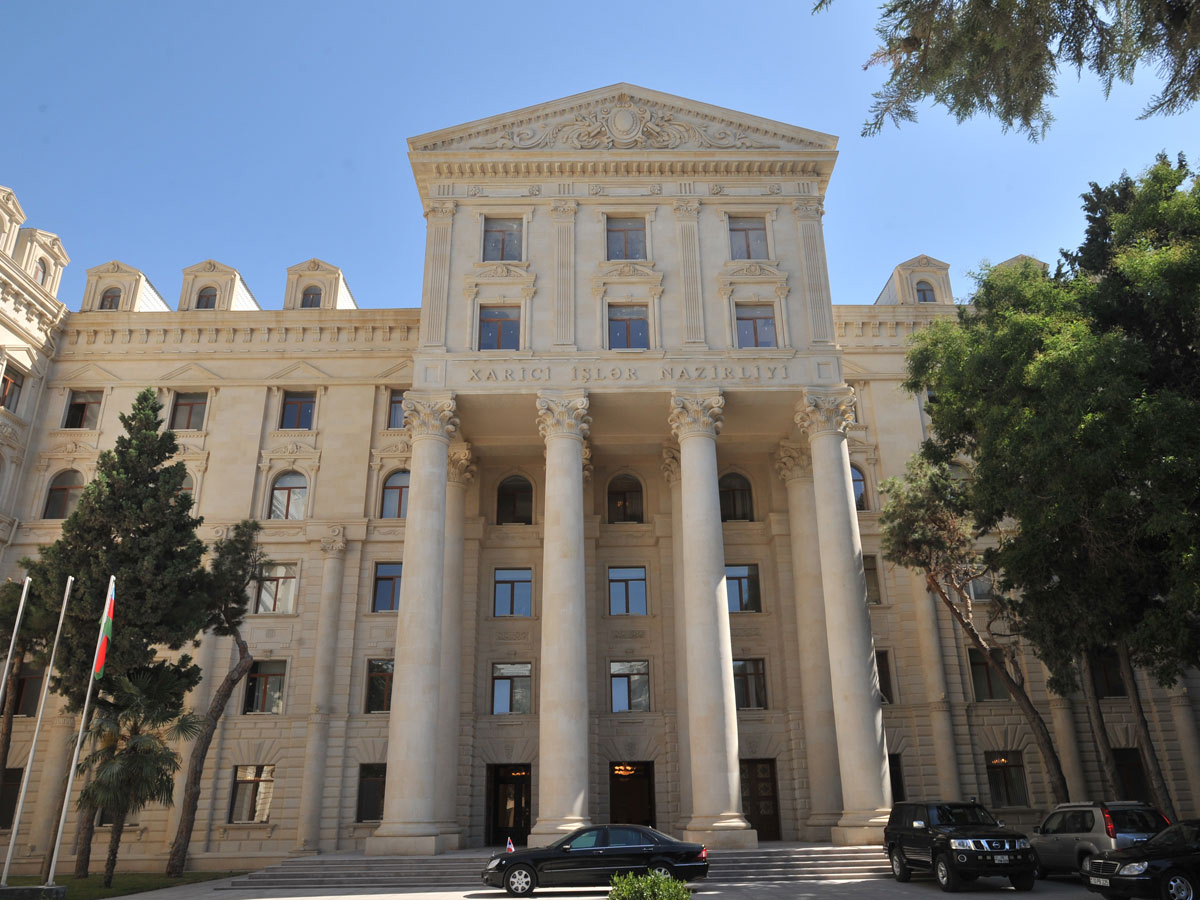Baku, Azerbaijan, Oct. 12
Trend:
In line with his statement made earlier at the UN General Assembly 73rd Session, the speech of the Prime Minister of Armenia at the opening session of the Organization of La Francophonie presented another falsehood and far from reality picture of the situation around the Armenia-Azerbaijan Nagorno-Karabakh conflict, the commentary regarding the speech of the Prime Minister of Armenia provided by the Foreign Ministry of Azerbaijan to Trend Oct. 12 reads.
Such rhetoric is completely detrimental to the spirit of talks that took place in Dushanbe between the President of Azerbaijan and the Armenian Prime Minister.
"If the Prime Minister of Armenia wants to be honest then we invite him to be completely fair and acknowledge violated fundamental rights of hundreds of thousands of ethnic Azerbaijanis forcefully expelled from their homes in the occupied Nagorno-Karabakh and surrounding regions of Azerbaijan," the commentary says.
It is noted that in a deliberate manner calling Armenian community as “people of Nagorno-Karabakh” the Armenian Prime Minister omits the fact of ethnic cleansing committed against the Azerbaijani community of Nagorno-Karabakh region of Azerbaijan. "If the Armenian leadership is calling itself democratic and speaks about creating an atmosphere conducive to peace then they have to act in accordance with the rule of law and democratic values and let those uprooted people return to their homes and withdraw its armed forces from the occupied territories of Azerbaijan, as it is demanded by the relevant resolutions of the UN Security Council and other international organizations,” the commentary of the Foreign Ministry says.
The commentary also emphasizes that all statements by the Armenian leadership about advancement of peaceful settlement process will remain mere words unless they are translated into real actions that would put an end to the occupation of the territories of Azerbaijan and ensure the return of the forcibly displaced Azerbaijanis to their homes and properties in the Nagorno-Karabakh region and other occupied districts of Azerbaijan in safety and dignity..
"Armenia must comply with its obligations and the position of the international community, constructively engage in the result-oriented talks with a view of the earliest peaceful settlement of the conflict and soonest withdrawal of troops from the occupied territories of Azerbaijan. Only afterwards, a lasting peace can be ensured in the region," the commentary says.
The conflict between the two South Caucasus countries began in 1988 when Armenia made territorial claims against Azerbaijan. As a result of the ensuing war, in 1992 Armenian armed forces occupied 20 percent of Azerbaijan, including the Nagorno-Karabakh region and seven surrounding districts.
The 1994 ceasefire agreement was followed by peace negotiations. Armenia has not yet implemented four UN Security Council resolutions on withdrawal of its armed forces from the Nagorno-Karabakh and the surrounding districts.






